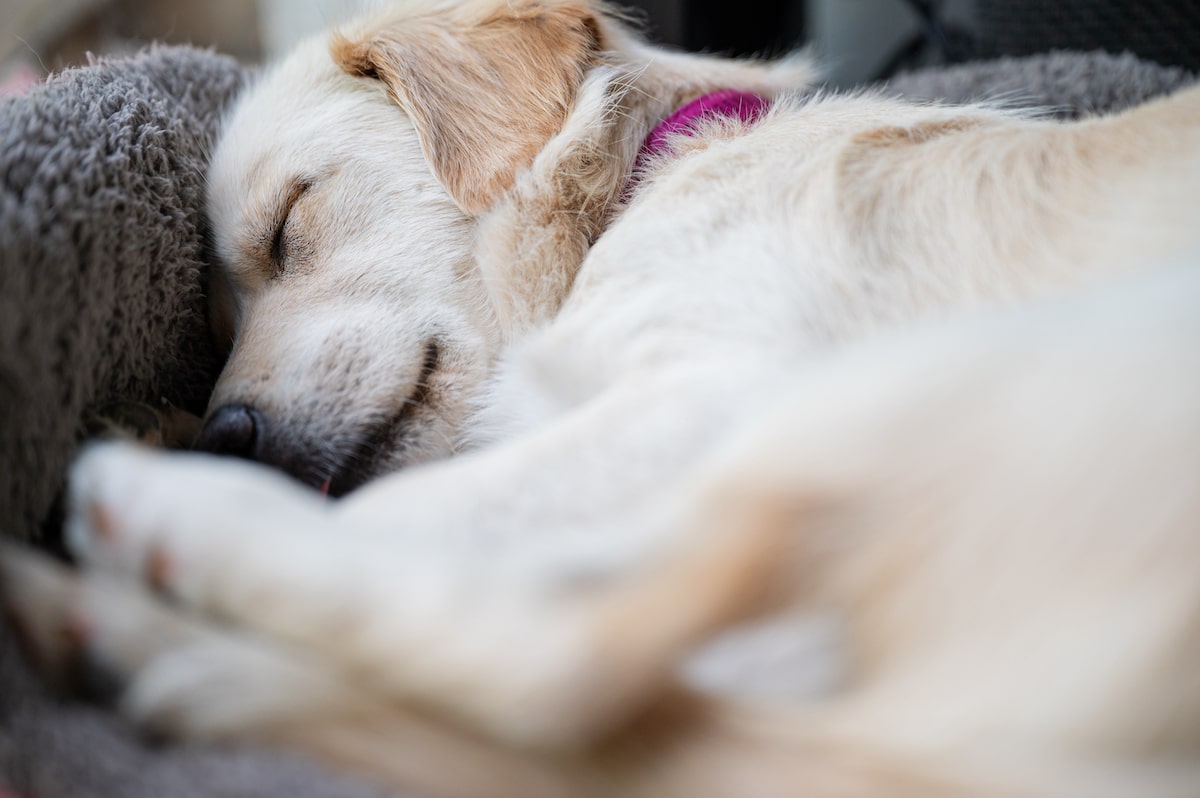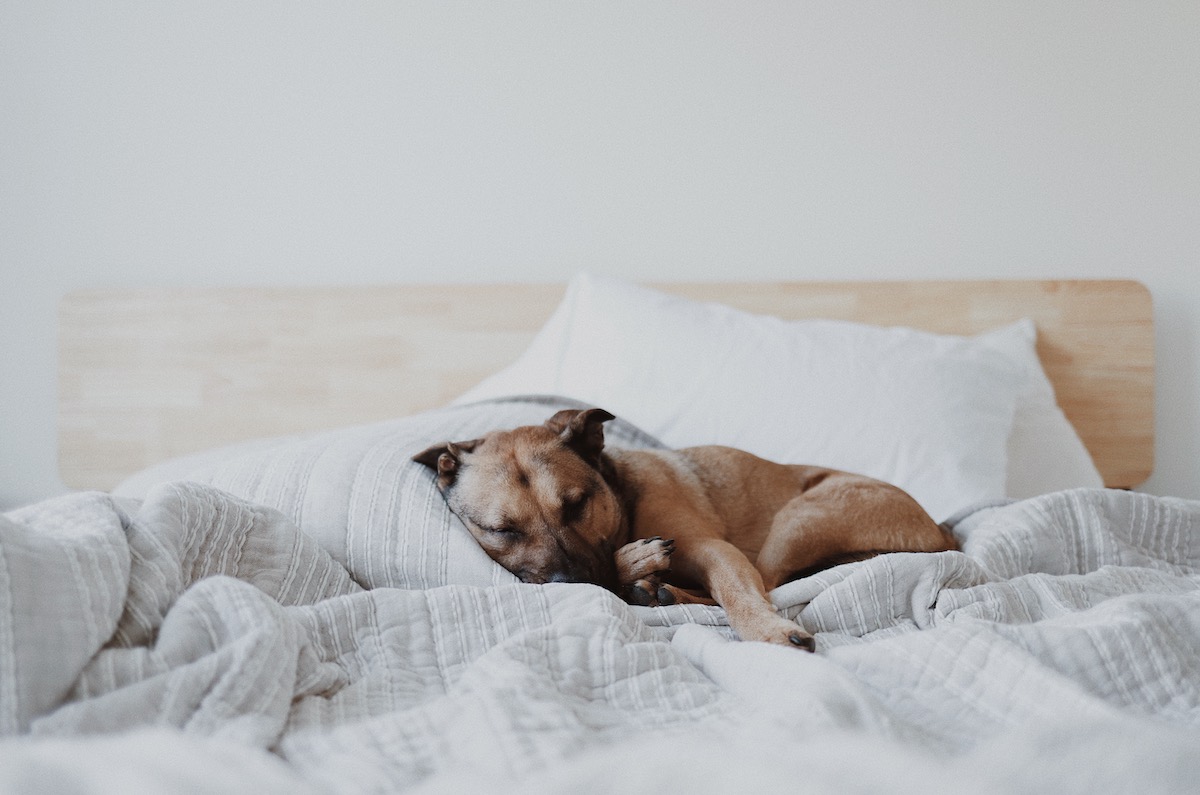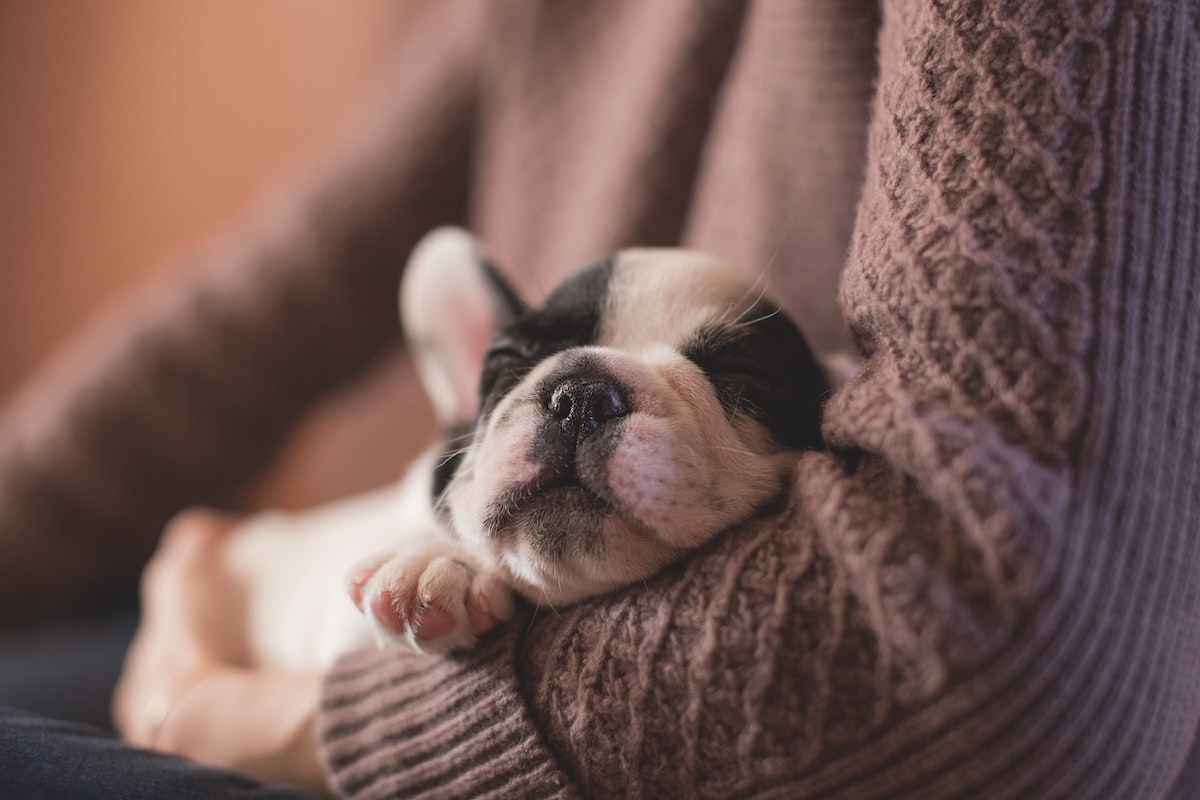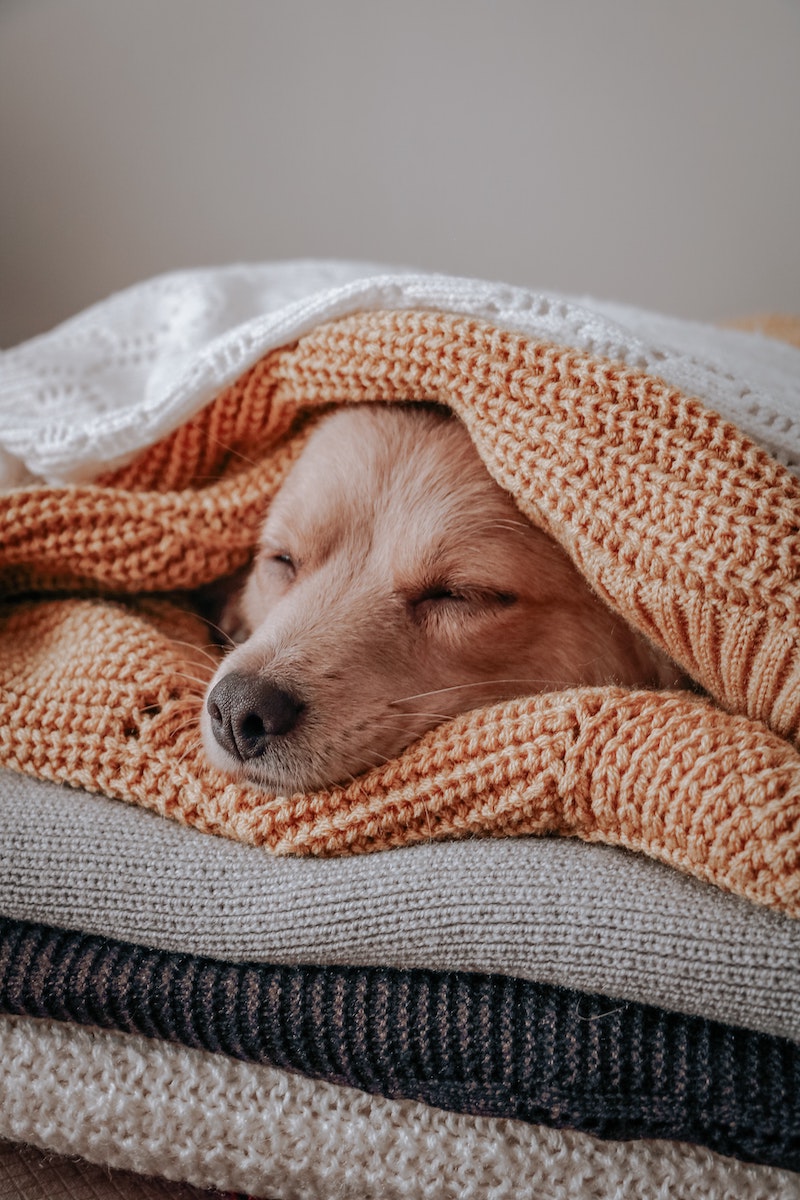Table of Contents
Dogs are cute and overactive. Between playing, eating, and turning the house upside down, it can be surprising (and maybe just a little alarming) how many snoozes and naps they can fit into their day. A dog can be active one moment and sound asleep the next!
If you’re worried about why your dog seems to sleep too much, you’re in the right place! In this article, you’ll learn why dogs sleep a lot, what makes them sleep a lot, and when you should be concerned about your dog’s sleep. Let’s dive right in!
Why Do Dogs Sleep So Much?
Dogs sleep a lot because of their brain activity. Throughout the day, dogs constantly learn new things and form new memories and experiences. Sleep helps them to process, replay, and retain all this new information.
Dogs usually sleep for 12-16 hours daily. They don’t sleep for long at once, though. They take naps throughout the day and settle for more sleep at night.
Additionally, dogs sleep a lot because they need long hours of REM (Rapid Eye Movement) to function well. REM sleep is the period where the body is relaxed, but the mind and brain are active. REM constitutes about 25% of sleep for humans, while it’s merely 10% for dogs.
Our canine friends are light sleepers. Hence, they tend to sleep more to get more REM sleep. REM sleep is important for their brain development, the maintenance of their body cells, and the maintenance of their immune system. If they don’t get enough sleep, dogs can become more vulnerable to illness, become more aggressive, or develop anxiety. =
How Much Sleep Do Dogs Need?
Most dogs tend to sleep for over 50% of their day. However, various factors dictate how much sleep a dog needs. These factors also shape a dog’s sleep schedule and pattern. The next section will cover some of the most important factors to consider.
1. Age
A dog’s age is a major determinant of how much sleep it needs and, in turn, how much it sleeps. Puppies need about 14-20 hours of sleep daily. This is because they’re still developing, learning, and exploring. They need a lot of rest to regain their energy and process their memories.
“Senior” dogs, on the other hand, need 14-16 hours of sleep. This is because they tire out easily and need more energy for their day-to-day activities.
2. Breed
A dog’s breed also determines how much sleep it’ll need. Larger breeds of dogs such as Newfoundlands and St Bernards usually need more sleep than their smaller counterparts, sleeping for up to 18 hours in a day!
3. Lifestyle/Purpose
A dog’s lifestyle also determines how much sleep it’ll have. Working dogs (search and rescue dogs, military dogs, and guard dogs) will sleep less than their sedentary (less active, like pets) counterparts because they have been trained to be active.
4. Environment
The weather and a dog’s immediate environment can also affect a dog’s sleep. A hot summer day could exhaust a dog, causing him to need more sleep. On the other hand, a dog may be more active during winter to keep warm.
A major life change such as moving to a new house or changing your daily schedule can also make your dog sleep more. This is because it’s still trying to get used to the new environment or adapt to your new schedule.
5. Health Issues
A sick dog will most likely sleep more than a healthy dog because it’s trying to reserve its energy and recuperate from illness.
However, a sick dog can’t walk up to you and tell you it’s sick. But it’ll exhibit signs like aggression, diarrhea, lameness, difficulty breathing, alopecia (hair loss), loss of appetite, sudden weight gain/loss, and excessive sleeping.
Consequently, sick dogs need plenty of rest and adequate care to regain strength and get better. So, if your dog is sick, it’s best to schedule an appointment with a vet and allow it to sleep as much as it needs.
When Should I Worry About My Dog’s Sleep?
It’s normal for your dog to sleep for most of the day. However, it can be a sign of illness — a dire cause for concern — when your dog begins to sleep too much. Here are some tell-tale signs that your dog is sleeping too much.
- Change in sleep patterns
- Sleeping even when an interesting activity is going on — one it’d usually participate in
- Sleep interferes with eating and drinking
- Rousing your dog in the morning is a little harder than usual
- Your dog wakes up all of a sudden, frightened or stressed
These signs could be accompanied by physical symptoms such as:
- A change in defecation patterns
- Limping/lameness
- Reluctance to walk and jump
You may also notice behavioral symptoms such as:
- Pacing
- Drooling (a sign of anxiety)
- Urinating or defecating in the house
- Aggression
When you observe any of the above symptoms in your dog, it’s time to see the vet. They may be signs of diseases such as diabetes, hypothyroidism, or deafness.
Conclusion
A dog’s lifestyle and sleep schedule are very different from a human’s, so there’s no cause for alarm if you notice that your dog sleeps more than you do or wakes up later than you do.
However, if you notice that your dog is sleeping more than usual and also displaying some unusual behavior, you should schedule a visit to the vet.
Note: This article is neither a medical guide nor a general chart for dogs’ sleep. Each dog is unique and has different sleep needs and patterns. Don’t forget to check with a vet for any more questions that you have.





